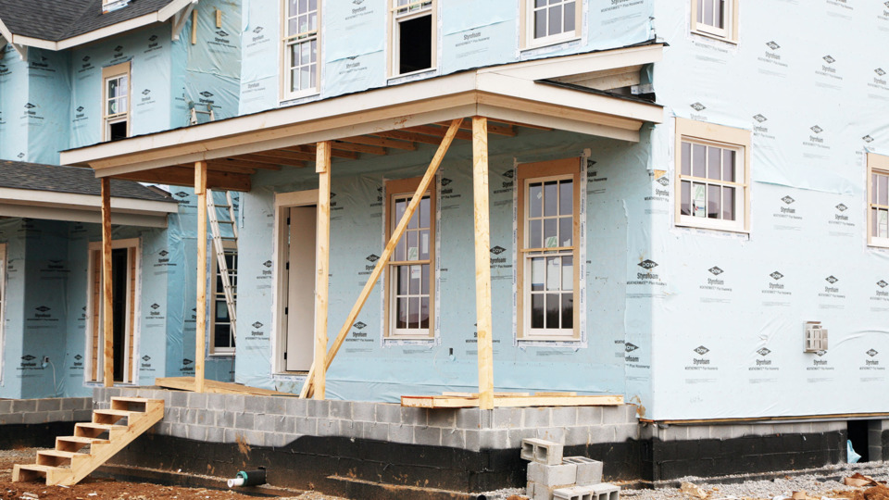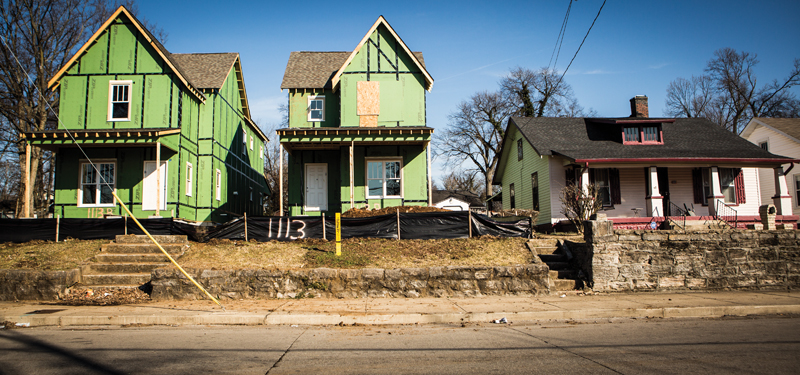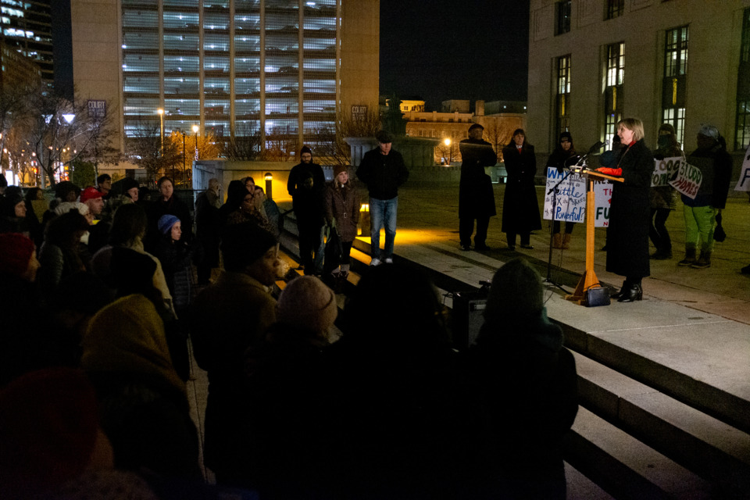People across the country are concerned about the mass displacement that could take place once the federal moratorium on evictions expires — especially since the freeze could end before the pandemic is over. But even before COVID-19 came to Nashville, the problem of access to affordable housing has loomed large over the city.
Last week, Mayor John Cooper assembled a crew of city officials, developers and activists for a 22-member task force, which is set to have its first meeting on Thursday. There’s plenty of work to do, says member Kay Bowers, who recently retired from the housing nonprofit New Level Community Development Corporation.
“We have a drastic need for supply,” Bowers says. “We have such a shortage of units that are affordable for a huge segment of the population.”
According to a study from Harvard, 44 percent of Davidson County renters were cost-burdened in 2018, which means they were spending more than 30 percent of their income on housing.
Bowers hopes that the task force can become a sort of “North Star” for the city’s housing community, helping coordinate different organizations that are already on the ground. “Nashville has, to its credit, some great entities doing very good work, but ... they're not connected as well as they might be.”
Bowers adds that another place the task force needs to start is by figuring out where things stand in terms of housing.
Metro Councilmember Burkley Allen, also on the task force, agrees. Allen says the city needs to follow up on a study that predicted Nashville will face a shortage of 31,000 affordable housing units by 2025.
“Just knowing if we're moving where they said we were, or if we've improved, and how far away from the goal ... are we now," Allen says, "I think just getting a little bit information about that would be helpful."

Kay Bowers addresses a 2019 rally to restore the Barnes Housing Trust Fund
There’s a wide array of tools that can be used in the push for additional affordable housing, judging from what other cities have implemented. There’s some hope that changing zoning laws could be an option, but it won’t be easy to pursue, given the fact that the state would likely strike down such measures.
The state’s rent-control law hampered Nashville’s previous efforts to create inclusionary zoning policy, which calls for developers of certain projects bigger than five units to include affordable housing. Sometimes this includes incentives, such as allowing developers to build taller or denser projects in exchange for including affordable units. And while the city developed a scaled-back voluntary version of this incentivized policy, the state legislature passed a bill in 2018 to nullify it.
“That was one area that I've put a lot of effort into and am frustrated at this point that there's not the number of new units to show for it that we desperately need,” says Allen, a sponsor of the inclusionary zoning law. Hundreds of jurisdictions around the country implement some form of inclusionary zoning — one study from 2017 estimates that at least 173,707 affordable units were built nationwide under such policies.
Bowers also emphasizes the need to identify which existing units are at risk of increasing in price because of expiring affordability requirements — a phenomenon estimated to affect almost 300,000 affordable housing units nationwide by 2025. “It's less expensive to preserve than it is to create new again,” says Bowers, who suggests a new fund could allow nonprofits to intervene and negotiate for extended affordability requirements.
Bowers is familiar with the costs of new developments — New Level’s 51-unit development faced a setback when the city impounded money from the Barnes Housing Trust Fund at the end of 2019, putting its contract on the land in jeopardy. Investors helped the developer secure a loan, and councilmembers pressured the mayor’s office to reauthorize the Barnes grant for New Level, which was included in the FY2021 budget.
Housing advocates applauded the task force’s formation, though there were still some reservations — including the lack of experts from the homelessness service provider community. Open Table Nashville, a nonprofit that works closely with people experiencing homelessness and poverty, suggested the mayor also invite Vanderbilt sociologist Beth Shinn. Councilmembers Erin Evans, Freddie O’Connell and Sandra Sepulveda — who sit on the Homelessness Planning Council — sent a separate letter calling for Shinn’s appointment.
The mayor’s office acted on the suggestion and contacted Shinn, who told the Scene on Monday she accepted the invitation.
Shinn co-authored a book on ending homelessness titled In the Midst of Plenty: Homelessness and What to Do About It. She also recently organized the Humanizing the Statistic memorial and study, which paid tribute to the 132 people from the homeless community who died in Nashville in 2020.
“Affordable housing means different things to different people,” Shinn says via email. “My focus will be on making housing affordable to our poorest neighbors, including people who are currently living on our streets. Much will depend on the fate of [President-elect Joe Biden's] stimulus proposal in Washington, which includes funds for a massive expansion of the Housing Choice Voucher program. If those funds are enacted, ending homelessness is within our reach.”
The task force will meet virtually for the first time on Thursday, Jan. 21, with a recording available via Metro’s website.







